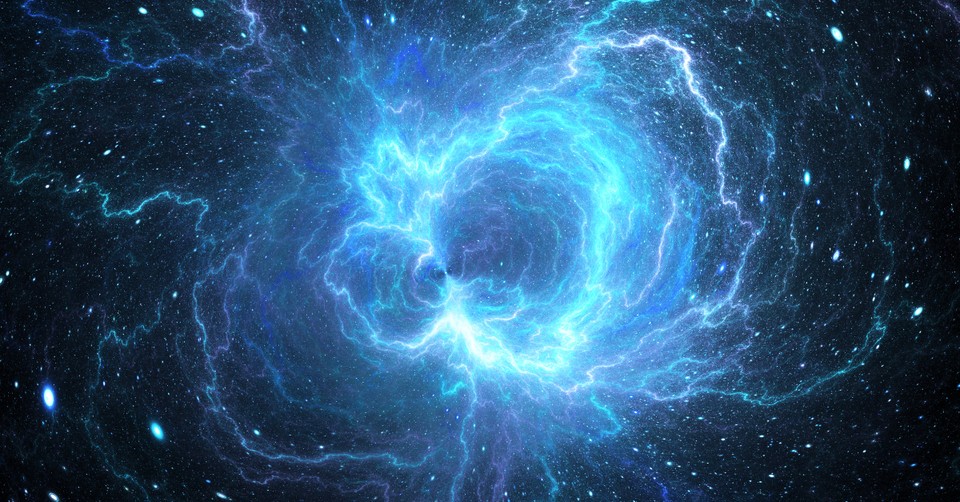15 Great Christian Sci-Fi Books for Kids and Adults

You may not know what makes a book science fiction (short name: sci-fi), or that there is such a thing as Christian sci-fi books. Here's what you need to know if you're interested in checking out the genre, and some great Christian sci-fi books to try.
What Is Sci-Fi?
Before we get into Christian Science Fiction, we need an idea what sets it apart from fantasy. In a 2006 speech about sci-fi, Simon Morden quoted a popular definition: “A good science fiction story is a story about human beings, with a human problem, and a human solution, that would not have happened at all without its science content.”
In The Science Fiction Makers, Derek White explained how many people separate sci-fi into two categories: hard sci-fi (example: Star Trek) and soft sci-fi (example: Star Wars).
Hard Sci-Fi
Hard sci-fi technology seems plausible, its ideas are grounded in scientific theories. Star Trek talks about space travel laws and shows inventions (touchpads, wireless phones) based on 1960s predictions. In his essay “On Science Fiction,” C.S. Lewis called this “the fiction of engineers.” In fact, the famous Big Three of Hard Sci-Fi all had engineering or math degrees: Robert Heinlein (engineer), Isaac Asimov (biochemist), and Arthur C. Clarke (mathematician and physicist). Clarke co-wrote 2001: A Space Odyssey, which emphasized realistic spaceships and astronaut tools.
Soft Sci-Fi
Soft sci-fi technology may seem like magic and rarely explains it in a plausible way. Usually, the plot, character, or setting matters more. Star Wars never really explains how the Force works, and its space elements (ships catching on fire in space, zipping around like WWII fighter planes) don’t try to follow real physics.
Soft sci-fi gets close to fantasy but doesn’t work without science content. Star Wars requires space travel and emphasizes how machines often break down at the worst times (something George Lucas learned from building cars).
Is Sci-Fi Always Anti-Religion?
From the start, sci-fi has considered religious ideas. Mary Shelly’s Frankenstein, arguably the first true science fiction novel, has a monster who learns to read from John Milton’s Paradise Lost. Once the creation tracks down his creator, he appeals to the “eternal justice of man,” while Victor Frankenstein labels him “abhorred devil.” After Frankenstein rejects his creation, it talks about hurting his creator, language echoing Lucifer’s speeches in Paradise Lost.
H.G. Wells and Jules Verne, who popularized early science fiction, reference religion more ambivalently. Wells took an atheistic approach, describing a world where humanity has no God to call on. Verne became a deist (“God exists, doesn’t interact with creation”), and his fiction references God without any sense one could seek God’s help.
As secular Darwinism became more popular, and creationism versus evolution debates more vocal, more sci-fi depicted religion as backward. A lot of sci-fi also became interested in what C.S. Lewis called “scientism,” idolizing scientific progress. In the early 1940s, Arthur C. Clarke wrote various letters to C.S. Lewis where they debated whether scientism was a problem.
Can Christians Write Sci-Fi?
Many would argue sci-fi will always have something religious to it. Christian writers like Stephen Kotowych have argued that sci-fi stories are “wonder tales” in modern language. However, sci-fi often attracts writers who like to subvert orthodox religious ideas. So, even though religious ideas may be inherent to sci-fi, it’s not often associated with Christian writers.
Despite this, there is a tradition of science fiction by Christian writers. After Christian Fiction became a publishing category in the 1970s, Christian sci-fi grew alongside Christian fantasy as a marketable genre.
The following list of books, like Crosswalk’s recent list of Christian fantasy books, contains several kinds of Christian books. Some are marketed as Christian Fiction, others not. Each entry lists the recommended age group.

5 Classic Christian Sci-Fi Books
In one way or another, these books predate Christian Fiction’s creation in the 1970s.
1. Out of the Silent Planet by C.S. Lewis (Recommended for Adult Readers)
Many Christian kids who grew up reading C.S. Lewis’s Chronicles of Narnia may be surprised to hear that he wrote sci-fi. Part one in The Space Trilogy, Out of the Silent Planet emulates H.G. Wells’ space travel stories while asking theological questions about alien life.
Cambridge professor Elwin Ransom is hiking through the English countryside when he meets Richard Devine, an old schoolmate working with Dr. Weston on “a little project.” When the two men kidnap Ransom, he discovers their project is a spaceship for Mars. Ransom worries why Devine and Weston want an extra man on this trip: apparently, the locals asked for a third man.
Readers who enjoy this story may also enjoy Lewis’ sci-fi short stories collected in The Dark Tower and Other Stories.
2. Night Operation by Owen Barfield (Recommended for Young Adult Readers)
C.S. Lewis’ Oxford classmate Owen Barfield had an eclectic spiritual life and wrote many things from philosophy to fairytales. Night Operation is one of Barfield’s several novels, a dystopian story about a secular society that only sees people as functions.
In the future, terrorism has forced humans to live beneath the surface. Jon, Jak, and Peet live in a sewer and are raised like everyone else: an education system with only the brutal basics. When Jon gets permission to use the restricted library, he finds his mind grows in odd ways as he learns new words. Slowly, he starts thinking in “subversive ways” which may not be tolerated.
3. A Wrinkle in Time by Madeleine L’Engle (Recommended for Young Adult Readers)
Sometimes classified as sci-fi, sometimes as fantasy, A Wrinkle in Time fits between the two labels. The story has space travel and references to astrophysics, but also a lot of magical imagery.
Kids see Meg Murray as “the dumb one” at school – her parents are scientists, and she can’t do math. The truth is that Meg’s astrophysicist father taught her too many math shortcuts. Meg’s father disappeared during a secret project, her family discovers an odd clue when a stranger mentions tesseracts. Meg, her brother Charles, and their new friend Calvin try to learn what a tesseract is, and find themselves on an intergalactic quest to find Dr. Murray.
4. The Messiah of the Cylinder by Victor Rosseau (Recommended for Adult Readers)
Victor Rosseau Emanuel died unknown but has been rediscovered as an important early sci-fi writer with a Christian perspective. The Messiah of the Cylinder responds to H.G. Well’s The Sleeper Awakes, placing religion’s value at the center of discussions about what a future society could look like.
Lazaroff is a materialistic scientist who promotes eugenics and doesn't believe in souls. When he places his colleague Pennel in a cryogenic chamber, his friend wakes up 100 years later in a society built on science alone. Family structures have been destroyed, religion has been banned. Pennel must be careful to evade the authorities, who tolerate no insubordination.
5. The Ball and the Cross by G.K. Chesterton (Recommended for Young Adult Readers)
Most people know G.K. Chesterton for his Father Brown mysteries or his lay theology books. The Ball and the Cross combines road trip comedy with sci-fi while discussing atheism's limits.
The story begins with Professor Lucifer, a maverick scientist who kidnaps a monk with a flying machine. Later it follows a staunch Roman Catholic who gets in a fight with a staunch atheist. They plan to fight a duel, but civic laws forbid dueling, so they hit the road to find somewhere private. As they travel, they debate religion and meet people with other worldviews. Eventually, they intersect with Professor Lucifer, who has created a new scheme.
5 Christian Sci-fi Books that are Christian Fiction
Most of these books were released by Christian publishers and marketed as Christian fiction.
1. Firebird by Kathy Tyers (Recommended for Adult Readers)
Part 1 of the Firebird series, Kathy Tryers first published this book in 1986 before rewriting it to emphasize questions about destiny and faith. It also involves an alternate future where a certain person hasn’t been born yet.
Lady Firebird is a Queen’s third child in a society that sees younger royal siblings as disposable. When enemies catch her on a military mission, she meets telepath Brennen Caldwell. Caldwell ignores advice to be careful with his prisoner, learning as much as he can about Firebird’s people and their plans. Firebird begins to wonder herself what side she should follow.
2. Shadow and Night by Chris Walley (Recommended for Adult Readers)
This first book in the Lamb Among the Stars series, Shadow and Night plays with End Times questions in an interplanetary context.
Farholme is one of the farthest plants that humanity has colonized, and a peaceful one. War hasn’t occurred in centuries. Slowly but surely, that peace starts to crack. Farholme native Merral D'Avanos and Earth warrior Verofaza Laertes Enand must consider what to do in a pending conflict that may have eternal consequences.
3. The Oxygen series by John B. Olson and Randy Ingermanson (Recommended for Adult Readers)
A two-book series by writers with PhDs in biochemistry and theoretical physics, Oxygen and The Fifth Man combines romantic suspense with hard sci-fi. Originally published in 2001, both books consider the creationism-evolution debate.
Dr. Valerie Jensen didn’t expect her NASA application to get accepted, certainly not right before NASA preps a Mars mission. Ares 10 will take two years to reach the planet, with four or five astronauts. Bob Kaganovski is wary of this new teammate, or any change this late in the game. When suspicious events force an astronaut to drop out, Ares 10 has to take Jensen along. Once they’ve left orbit, Jensen starts to wonder if someone doesn’t want her to return in one piece.
4. The Paradise Protocol by Anna Zogg (Recommended for Adult Readers)
The first book in the Intergalaxia trilogy, The Paradise Protocol is a combination of space travel and romance and questions about humanity’s attitude to space exploration.
Aric Lindquist didn’t expect her research mission on an unknown planet to go this badly. Her teammates have died or disappeared, the last one gone for five months. Her sending organization hasn’t contacted her or sent anyone new… until Sean Reese shows up. Sean was informed that Aric Lindquist was deranged and he has been assigned to preserve the project’s goals at any cost... even if that means eliminating Aric. Once they meet and Sean hears her side of what happened, Sean starts to reconsider his plan. Salvaging the mission and staying alive will be more complicated than either of them thought.
5. Heaven Came Down from Bryan Davis (Recommended for Adult Readers)
Bryan Davis writes anything from fantasy (Dragons in Our Midst) to paranormal suspense (Let the Ghosts Speak). Heaven Came Down is the first book in his Oculus Gate series, combining End Times fiction tropes with post-apocalyptic sci-fi.
After a war ravaged the earth, strange beings appeared. Some called them angels, and the beings demanded worship. Anyone who refused died. Ben, Jack, and Trudy Garrison have joined rebels fighting the beings before all humanity is enslaved. When intelligence discovers a plan to infect rebels with a contagion, the Garrisons get special orders: infiltrate the enemy, replace the contagion, and return with a vaccine. The Garrisons don’t know whether they will get out alive – or whether to trust the spies, bounty hunters and others they meet on the way.

5 Christian Sci-Fi Books that Aren’t Christian Fiction
These books are written by Christians but don’t fit into the Christian Fiction marketing category. Sometimes this means mainstream publishers published the books, sometimes it means the books were published outside the United States – Christian Fiction is basically an American market.
1. The Overlord War/Tales of Solomon Star series by Charlie W. Starr (Recommended for Youn Adult Readers)
A C.S. Lewis scholar with an interesting specialty, Starr’s books play on spiritual themes like Lewis’ Space Trilogy does, but are also fun adventure stories. The Tales of Solomon Star begins with The Heart of Light, those adventures lead into the Overlord War in The Darkening Time. Solomon Star’s adventures and the Overlord War both come to a head in the latest book, The Aurora Gambit.
Solomon Star was once a bodyguard for the Galactic Empress. Now he lives on the run, a price on his head, and a chance to find out his past on an obscure planet. Unfortunately, with the kind of people hunting for him, Star may not have long to do it.
2. Brother Odd by Dean Koontz (Recommended for Adult Readers)
Dean Koontz has spoken various times about his spiritual journey, and his works have been cited as highlighting life’s value even in dark places. Koontz has written several pure sci-fi novels (Star Quest, Demon Seed) and often weaves sci-fi concepts into his suspense thrillers. Brother Odd is a good introduction to how he combines sci-fi with suspense.
Odd Thomas was born with that name. He also has an odd ability he can’t control: he can see the dead. After losing the woman he loved, Thomas retreats to St. Bartholomew’s Monastary, privately funded by physicist John Heineman. Thomas hopes to forget his troubles. Unfortunately, something not entirely human lurks around the monastery, targeting residents who can’t defend themselves.
3. Cinder by Marissa Meyer (Recommended for Young Adult Readers)
Part 1 of the Lunar Chronicles, this book might best be described as a cyborg riff on Cinderella. There are fairytale tropes, there is also a future sci-fi setting and some interesting questions about the line between human and machine.
It has been decades since humans colonized the moon and reorganized Earth’s nations into new empires. In New Beijing, people can augment lost bodyparts with prosthetics but are shunned by everyone else. Cinder has been a cyborg since she was 11 years old and remembers nothing before that. When she’s hired to fix Prince Kai’s android, she becomes a pawn in a larger plan to ally Earth with the Moon colony. When Cinder discovers she’s one of the only people immune to “the Blue Fever” plague, she becomes even more important, and maybe even a threat to some.
4. Pandora’s Box by Nathan Marchand (Recommended for Young Adult Readers)
A combination of sci-fi with post-apocalyptic themes, Pandora’s Box considers questions about invasive technology and finding hope amidst soul-crushing circumstances.
A soldier has been left underground with one set of orders: stay until reinforcements arrive. Protect the Pandora’s Box. She finds two books outlining the start of Pandora’s Box, when the world was a very different place. Brewer was just a soldier’s son when the virus hit and the war started but quickly rose through the ranks. Pandora’s Box was his only assignment.
Readers who enjoy this book may also like the connected short story included in The Day After.
5. Empyrion Saga by Stephen R. Lawhead (Recommended for Young Adult Readers)
Many readers know Stephen R. Lawhead’s Christian fantasy (the Dragon King trilogy) or his historical fiction (the King Raven Trilogy). The Empyrion Saga was first published as one book but is also available as Empyrion I: The Search for Fierra and Empyrion II: The Siege of Dome.
Orion Treet has done a few things in his life, few of them successful. So, when he gets a chance to document life on a space colony, he doesn’t think twice. Once he arrives, it turns out the promised paradise has become something else. Two highly advanced civilizations have been competing for this planet for a very long time. Things are coming to a head, and no one can claim neutrality.

How to Find Christian Sci-Fi Books
As with finding Christian fantasy books, there are several places you can look for new, interesting Christian sci-fi books.
First, check who published a book you recently finished. There are Christian publishers with imprints (like Mountain Brook Ink) for Christian fantasy or sci-fi. There are also Christian publishers like Enclave Publishing or Monster Ivy who specialize in Christian speculative fiction (science fiction, fantasy, and related genres). Some publishers have a special style (Monster Ivy advertises itself as “Clean fiction with a darker bite. Rated PG-13 or less”). Some publish Christian sci-fi under other labels (Bethany House publishes “Futuristic Fiction”).
Second, see what has won awards from Christian publishers or groups. The Christy Awards gives a prize for Visionary or Futuristic book every year. Realm Makers, an annual writers conference for Christian fantasy and sci-fi writers, also gives out awards.
Third, look for online communities that can help. There are readers’ groups on social media and websites like Lorehaven where Christian sci-fi fans recommend books. You may have to work your way through several groups to find one that is current, reputable, and fits your interests. Once you do, you’ll be glad you kept looking.
Photo Credit: ©GettyImages/sakkmesterke

Originally published June 29, 2022.





